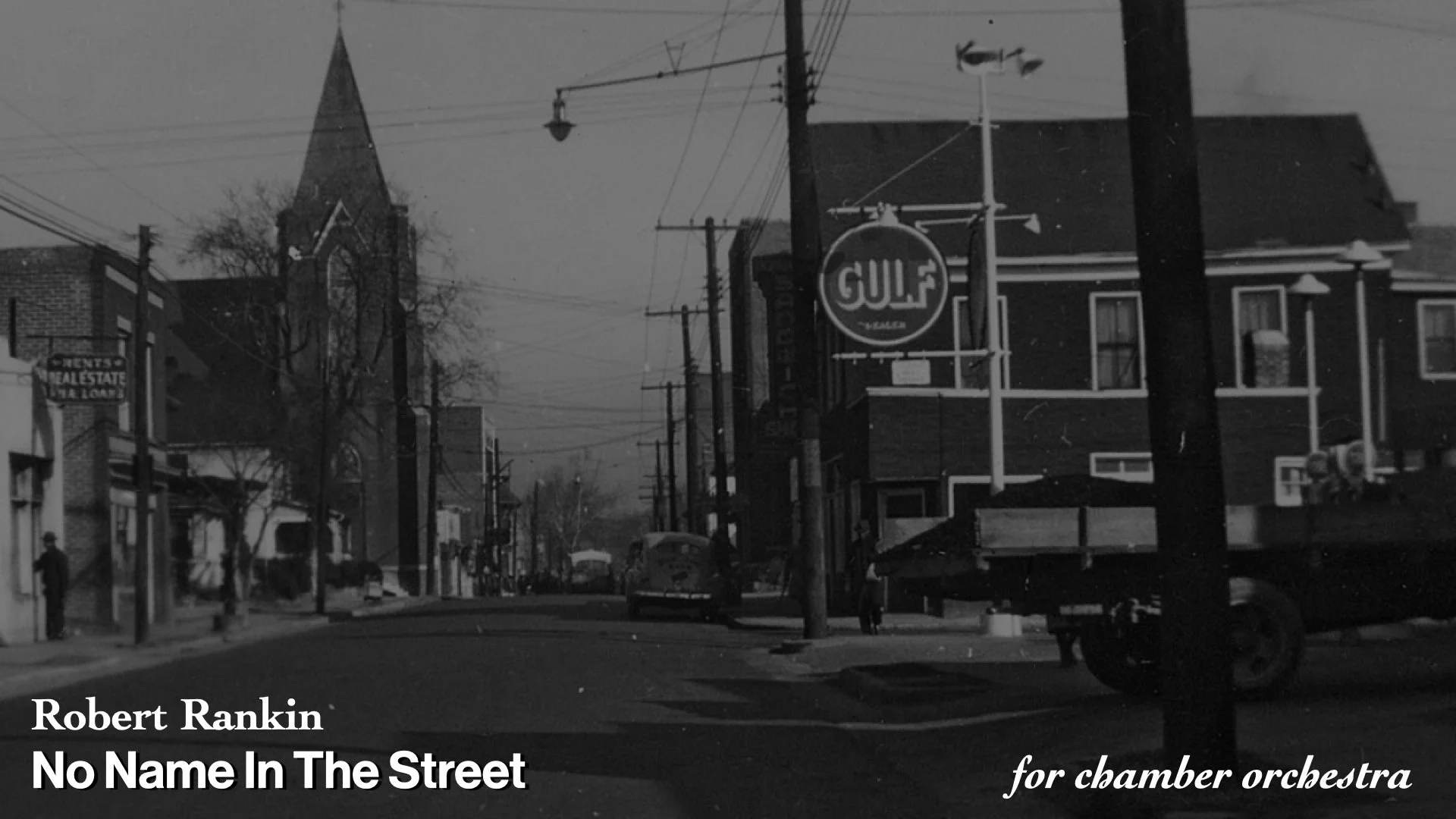No Name In The Street
ensemble: chamber orchestra (1[picc].1.1.1-2.1.1.0-2perc-strings)
duration: 10 minutes
written: fall 2019 - winter 2020
commissioned by: Durham Symphony Orchestra
premiere: April 10th, 2022; Durham, NC
Durham Symphony Orchestra; William Henry Curry, conductor (excerpt from the ending)
PROGRAM note:
Reap they the field that is none of theirs, strip they the vineyard wrongfully seized from its owner.
- Job 26:4
Being born and raised in the Raleigh-Durham NC area, I was shocked that I had never heard, until recently, about the history of Durham’s Hayti District. Founded as an independent black community after the Civil War, the Hayti District operated libraries, hotels, theaters, and a hospital becoming one of, if not the first, fully self-sufficient African-American community in the United States. Hayti continued to prosper throughout the 20th century until the 1950s with the urban revitalization of Durham which constructed the Durham Freeway directly down the middle of Hayti, deliberately splitting it in two.
My work, No Name In The Street, borrows its title from James Baldwin and is, in essence, about the history of Hayti. The piece begins with a long melodic solo line in the strings (based upon spelling the word H-A-Y-T-I into musical pitches). This theme grows and fleshes out into a broad, sweeping orchestral statement. This moment is slowly taken over by the brass and winds which begin to distort and obscure the theme. Now abstracted by the winds and brass, the theme can only occasionally can be heard. The piece reaches a great climax and is abruptly cut off. The music that opened the piece is now heard in its most clear and intimate form played by a solo string quintet. Slowly, over time, the theme begins to get erased by the orchestra, note by note, until one solo viola is left trying to sing out.
No Name In The Street is, more broadly, about the erasure of both history and communities as well as the importance of keeping the past alive even when forces greater than us attempt to eliminate them.
WUNC, the local NPR station in the Raleigh-Durham area in North Carolina, published a magnificent investigation into the housing crisis: https://wunc915.atavist.com/where-we-live
Press:
"No Name in the Street" was written by another Triangle native, Robert Rankin. This powerful piece was inspired by Rankin's deep dive into the history of the Hayti District, and its vibrancy after the Civil War through the 1950s, when urbanization cut the district in half with the construction of the Durham Freeway. Indeed, the beautiful Hayti Center butts right up against the Durham Freeway. (I encourage those not familiar with this historic site to visit and witness the beauty of the old church sanctuary, view work by local artists, and read about the deep history of the district.)
In "No Name in the Street," Rankin has created a sound world that is meant to reflect the history of the Hayti District, from a very calm and peaceful theme that becomes more chaotic and distorted. Effective devices such as the brass imitating the sound of a strong blowing wind and strings playing an eerie glide down the fingerboard gave the sense of something important leaving – blowing away, disappearing. Rankin's work is an attempt to express the importance of keeping something alive "even when outside forces greater than us attempt to eliminate them." This piece really hit home in this time when we are witnessing the elimination of Ukraine right before our eyes. There was intense concentration and fine playing from the orchestra.
- Classical Voice North Carolina

